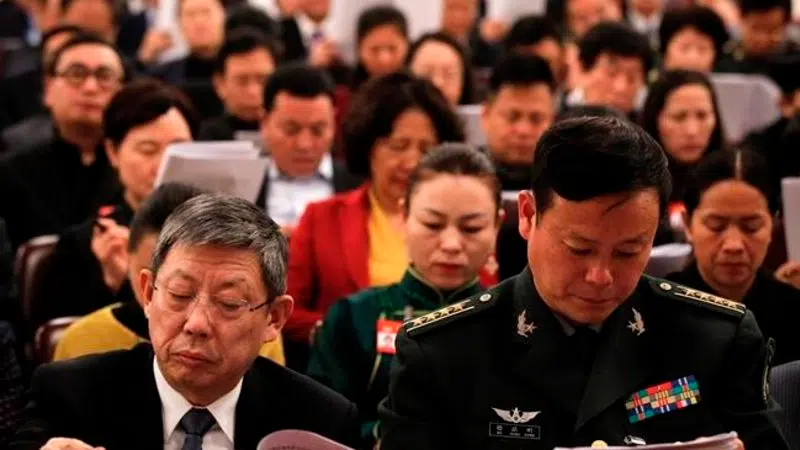
China sets robust growth target to shore up cooling economy
BEIJING — China announced a robust annual economic growth target and a 7.5 per cent rise in military spending Tuesday as it convened an annual legislative session overshadowed by a tariff war with Washington.
Seeking to defuse U.S. and European complaints the Chinese system is rigged against foreign companies, Premier Li Keqiang promised in a speech to the National People’s Congress that they will be “treated as equals” with their Chinese competitors.
Li, the country’s top economic official, set this year’s growth target at 6 to 6.5 per cent, reflecting determination to shore up a cooling state-dominated economy and prevent politically dangerous job losses. Such a growth rate, if achieved, would be among the world’s strongest. Yet it would be slightly below last year’s 6.6 per cent growth in China and would mark a new three-decade low.


